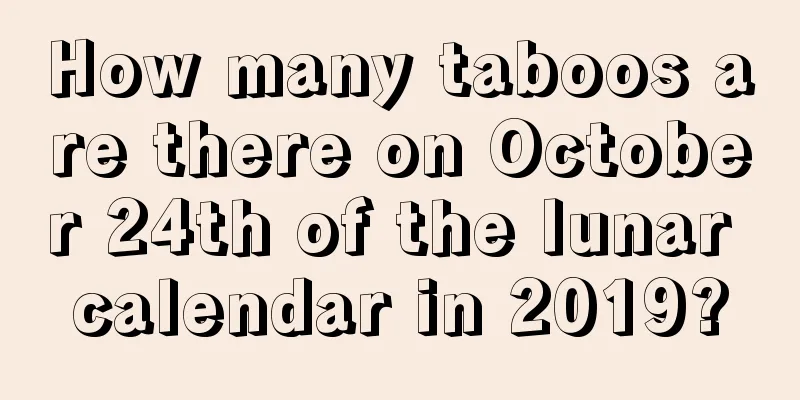What is the origin of Xiaonian and what does it mean?

Introduction: The new year is coming soon, and celebrating the Little New Year is something that cannot be ignored! In the 2018 Chinese New Year and New Year’s Eve special topic, Fortune Teller.com has carefully prepared a variety of content for everyone, come and have a look!What is the origin of Xiaonian and what does it mean?Xiaonian does not refer to a specific festival. Due to local customs, the festivals called Xiaonian are also different.The concept and date of Xiaonian vary from place to place. In the northern region it is the 23rd day of the twelfth lunar month, in some southern regions it is the 24th day of the twelfth lunar month, in Jiangsu, Zhejiang and Shanghai regions both "the 24th day of the twelfth lunar month" and "the night before New Year's Eve" are called Xiaonian, in Nanjing area the Lantern Festival on the 15th day of the first lunar month is called Xiaonian, in some parts of Yunnan it is the 16th day of the first lunar month, and in some ethnic minority areas in the southwest and north it is New Year's Eve. Legend has it that the Kitchen God was originally a commoner named Zhang Sheng. After marrying a wife, he spent his days in debauchery and lost all his family fortune, and was reduced to begging on the streets. One day, he went to beg at his ex-wife Guo Dingxiang's house. He was so ashamed that he dived under the stove and burned to death. When the Jade Emperor found out, he thought that Zhang Sheng had changed his mind and was not completely bad. Since he died at the bottom of the pot, he was named Kitchen God. He was required to report to heaven on the 23rd and 24th of the twelfth lunar month every year and return to the bottom of the pot on New Year's Eve. Ordinary people feel that the Kitchen God must be respected because he has to report to Heaven. Therefore, the Han people have the "Little New Year" of worshiping the kitchen god on the 23rd and 24th of the twelfth lunar month, praying for peace and prosperity in the coming year. Fan Chengda of the Song Dynasty said in his "Poem on Offering to the Kitchen God": "According to ancient legend, on the 24th day of the twelfth lunar month, the Kitchen God looks up to the sky and wants to speak. The cloud chariot and wind horses linger for a while, and every family prepares cups and plates for the rich offering. The pig's head is cooked hot, and the two fish are fresh, and the bait is made of bean paste, sweet pine and powder. Men offer wine and girls stay away, and the Kitchen God is pleased with the offerings and money. Don't listen to the quarrels of maids, and don't be angry at the filth of cats and dogs. I send you drunk and full to the Heaven's Gate, and don't say anything about the long or short ladle. I beg for the profits and share them when I return." It can be said that this poem vividly illustrates the customs and habits of the ancient Han people regarding offering to the Kitchen God. Of course, this is just a folk legend among the Han people and is not credible. How do people worship the Kitchen God?Specific operation method: Since generally every family has a portrait of the Kitchen God posted near the stove, and sometimes there is also a portrait of the Kitchen God's wife. After a year of smoke and fire, the portrait has become old and black. The old image must be removed and a straw horse made for the Kitchen God out of straw. In order to make him "speak good things to the gods and bring good luck back to the palace", he must be bribed by sticking a sticky candy melon or cake on his mouth to make his mouth "sweet" so that he can only say good things. The stove god is then burned together with the straw horse. This process is called quitting the stove. After the New Year, buy a new portrait and invite the Kitchen God back to be pasted up. During these few days, due to the lack of supervision by the Kitchen God, most people tend to overeat, gamble, and indulge themselves in minor mistakes that they normally think they should not make.Summary: The above is the origin of Xiaonian. What does Xiaonian mean? 】, I hope the entire content can be helpful to everyone! |
Recommend
What is the fate of a girl born on the Cold Clothes Festival on the first day of the tenth lunar month in 2022 and when will her fortune change?
The time of birth will affect the fate of a girl t...
What date is the 17th day of the first lunar month in 2019? What day is it?
The first month of the lunar calendar is more com...
What are the suitable days for picking up a car in September of the lunar calendar in 2019?
Nowadays, many people regard picking up a car as i...
Family fortune and family style-a complete explanation of the auspicious and unlucky positions in your home
Introduction: Bad feng shui in the home is a prob...
Is the Grain Full solar term on April 21, 2022 an auspicious day? Can we worship and pray on this day?
The fourth month in the lunar calendar is the mont...
What are the do's and don'ts on the second day of the seventh lunar month in 2020 (August 20)?
What are the do's and don'ts on the secon...
Is August 19th of the lunar calendar 2021 an auspicious day? Can I worship my ancestors?
Every day is good or bad, and the things suitable ...
Is it possible to get married during the Cold Dew season in 2018? What are the characteristics of the establishment of a marriage relationship?
Everyone hopes to have a perfect wedding in their ...
Is the 30th day of the twelfth lunar month New Year’s Eve? What are the customs and habits on New Year’s Eve?
Introduction: New Year's Eve is a very importa...
What is the fate of a girl born on the 26th day of the twelfth lunar month in 2019?
What is the fate of a girl born on the 26th day of...
Is it good or bad for a boy born on September 23rd of the lunar calendar in 2018? What is fate?
A new life is born every day, and the destinies of...
Query of unlucky days in April of the lunar calendar in 2018
Unlucky days are usually taboo for people. Let the...
Is October 24th of the lunar calendar, the Year of the Rat, 2020, a good day to move?
Good things always like to happen in winter, beca...
What is the lunar calendar for May 19th, 2021? Can we pray for blessings and wealth?
The pomegranate flowers are bright in May, and the...
The 27th day of the seventh lunar month in 2017 is a good day?
1. What day is the 27th day of the seventh lunar ...









